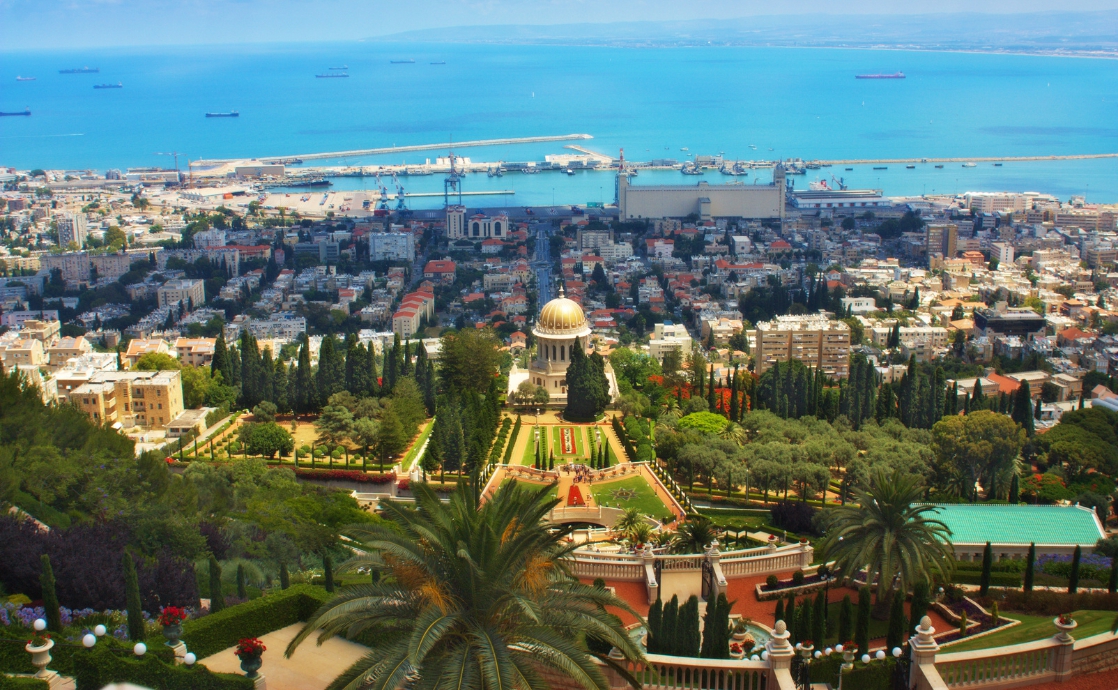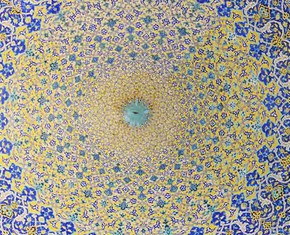The views expressed in our content reflect individual perspectives and do not represent the authoritative views of the Baha'i Faith.
The Baha’i Faith – the youngest of the world’s independent religions – only began in the mid-19th century in Persia, founded by Baha’u’llah, which means “the Glory of God.”
This means that Baha’is have their own prophet and founder, and that the Baha’i Faith didn’t branch out from another Faith. It is not a sect, an offshoot, or a denomination of any other religion.
In fact, the Baha’i Faith dates back to 1844 in Iran, where Mirza Ali Muhammad of Shiraz, also known as the Bab, which means “the Gate,” proclaimed the approach of a new messenger of God who would reverse old beliefs and customs and usher in a new era in human history. The Bab’s teachings spread rapidly and his new Faith grew exponentially, which caused strong opposition from both the Shi’ite Muslim clergy and the government – who arrested him and executed him by firing squad in 1850. During that time, many thousands of Babis were killed. The clergy and the authorities tried to stop the spread of the Bab’s religion by using violence and terrible persecution – but they did not succeed.
Baha’u’llah, a young Persian nobleman, was one of the Bab’s earliest and most passionate followers. In 1852, Baha’u’llah was arrested and jailed in Tehran. During his four-month imprisonment in the Persian government’s Black Pit, he realized that he was the prophet the Bab had predicted. After his release from jail, the government exiled him to Baghdad, where his leadership brought back the discouraged Babi community. In 1863, Baha’u’llah declared to his fellow Babis that he was the new messenger of God promised by the Bab. The Babis supported and acknowledged Baha’u’llah’s claim as a prophet, and therefore became known as Baha’is. Because of his teachings, Baha’u’llah was exiled and imprisoned for the rest of his life, but the Baha’i Faith continued to grow and spread.
The Baha’i Faith stands for three major principles – the oneness of humanity, the unity of all religions, and one Creator. In a talk he gave in London, Abdu’l-Baha said:
Baha’u’llah taught the Oneness of humanity; that is to say, all the children of men are under the mercy of the Great God. They are the sons of one God; they are trained by God. He has placed the crown of humanity on the head of every one of the servants of God. Therefore all nations and peoples must consider themselves brethren.
After Baha’u’llah’s passing in 1892, his eldest son Abdu’l-Baha became the new leader of the growing global Baha’i community, as well as the authorized interpreter of Baha’u’llah’s teachings. Abdu’l-Baha took long journeys to spread the Baha’i message of unity, peace, and compassion to North America, Europe and Africa. With his extensive writings, letters, and talks, and in his many addresses to congregations of all Faiths, he made the message of the Baha’is available to a wider audience. Abdu’l-Baha passed away in 1921, and he appointed Shoghi Effendi Rabbani, his eldest grandson, as his successor.
The Baha’i Faith expanded rapidly during the 1960s, and by the late 20th century, formed more than 150 National Spiritual Assemblies (Baha’i administrative institutions) and about 20,000 local assemblies worldwide. In 1963, the world’s Baha’is elected the first Universal House of Justice, the global administrative body proposed and designed by Baha’u’llah.
Today the Baha’i Faith has millions of followers worldwide – and has become the second most widespread religion in the world after Christianity. Baha’i communities carry out activities to expand unity and social transformation and to gather and unify people from different countries and religions. A lot of social interactions happen through events such as meetings, elections, parties, holy day celebrations and Baha’i feasts. Baha’i communities often tend to hold meetings in homes, local Baha’i centers, or meeting rooms. Often, these meetings allow people to get to know other new people, so all this brings together folks from different classes, races, ethnicities, and beliefs in peace and unity.
I am not yet a Baha’i myself, but I’ve learned a lot through a Baha’i junior youth program I’ve taken part in. I first heard about the Baha’i Faith five years ago when a Baha’i friend came into my school. She joyfully celebrated the Baha’i holy days, and gave out treats on those days. She explained what she was doing this for, but I didn’t think deeply about it at the time. I only started to get interested to see what a different religion would look like when she introduced the Young Writers’ Endeavor program to me. It was a three week program and I enjoyed it – a lot!
Baha’is all over the world serve humanity, and their local communities, by offering free programs like this one to children and young people. Those programs emphasize caring for others, kindness, and unity in diversity.
In the program I met many people with different views and perspectives. I was able to learn a lot more about the Baha’i Faith after all the meetings we had and tasks we were given to do. I was able to reflect on my own kindness, and became more aware of my actions that I project to other people. Overall, I’m thankful for the great opportunity to get into this program, to meet and work with other young writers like me, and to learn more about this peaceful, powerful Faith.
Now, after learning about the Baha’i Faith, I think the journey of how the Faith was created is a beautiful one, and I like how Baha’is around the world are spreading kind words and deeds. A few of my Baha’i friends have a really deep understanding of what it means and what it takes to be a Baha’i, and I am learning more about it every day.
You May Also Like
Comments

















The part about Baha'i not branching off from another faith is I think incorrect. The Bab and Baha'u'llah were both Muslims and very prominent ones at that. There are many elements of Islam that remain part of the Baha'i Faith. This is not much different than Christianity branching off from Judaism, or even Buddhism branching off from Hindu practice.
Would the author consider revising their article after reflecting on this a bit more?